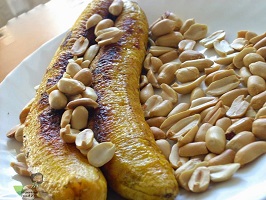Is Rice Good for Weight Loss ~ Separating Fact from Fiction
Is Rice Good for Weight Loss ~ Separating Fact from Fiction?
- Is Rice High in Calories or Weight-Loss-Friendly? Rice for Weight Loss
- Is rice good for weight loss and muscle gain ~ Is rice fattening?
- Some ways to safely eat rice on a weight-loss diet
Is Rice Good for Weight Loss is a question many people want to know.
Rice is one of the world’s most widely consumed grains. However, this subject is a little more complicated because there are many various sorts of rice, and each type is slightly different.
However, does eating rice cause weight gain or loss? Let us investigate!

About Rice
Rice is a staple food for more than half of the world’s population. The planet survives practically on rice.
“Rice is a grain that is eaten all over the world, including Asia, several African and European countries, and Central and South American countries.”
Because it is so common in Asia and Latin America, it accounts for more than 20% of the world’s calories consumed.
Furthermore, rice varies in variety, color, and consistency, providing numerous ways to consume it, and it can be inexpensive to buy.
White rice is the most popular type of rice since it has a long shelf life and is simple to boil and eat.
Rice’s involvement in nutrition is intriguing because more people are looking for the best diets and alternative therapies for various health concerns.
However, the significance of rice in these areas is controversial, and you should not avoid rice because of what you may have heard from a nutrition “expert.”
Yes, rice is high in carbs, but carbs aren’t all bad. Carbohydrates (or glucose) are essential to your brain and muscles, and they serve as a primary source of energy.
“Depending on your meal or food/cultural preferences, you can eat rice with beans, rice as a side with Asian dishes, rice as the main part of the dish, like risotto, or rice as part of the dish, like paella,” she explains.
Separating Fact from Fiction: Is Rice Good for Weight Loss?
Making whole grains, such as brown rice, a regular part of your diet may help you lose weight.
Although white rice has less nutritional value than brown rice, research has revealed no link between eating white rice and weight changes.
However, not all rice is created equal. Brown rice is generally thought to be superior to white rice, however the grains come from the same plant.
So, what’s the big deal about rice? Is it good for weight reduction or rich in calories? This article provides an answer to this question.
What is rice? Understanding what rice is
“Rice is the seeds of grains or grass plants that grow in water-submerged fields,” It is a cereal that can be whole or refined. Whole grains are made up of the entire grain.
Refined rice loses vital nutrients when ground, yet it can occasionally have a better flavor or a longer shelf life.
All whole grains contain three major components.
- Bran
- Germ
- The endosperm
Facts About Rice Nutrition
Rice is low in fat and suitable for gluten-free diets. The calories, macronutrients, vitamins, and minerals in rice vary depending on the variety.
One cup (200g) of cooked medium-grain brown rice contains roughly 220 calories, 4.5 g protein, 1.5 g fat, 45 g carbohydrates, and 3.5 g fiber, According to Precision Nutrition, Brown rice is high in vitamins and minerals as well.
For instance, one cup of white rice (185 g) contains around 240 calories, 4.5 g of protein, 1 g of fat, 55 g of carbohydrate, and 1 g of fiber.
Because white rice is processed, it contains only trace amounts of nutrients unless they have been reintroduced back in through a process known as enrichment.
Rice contains both digestible and resistant starch. The component of the starch that cannot be digested by human enzymes is known as resistant starch.
This could help people lose weight by increasing their appetite, controlling their hormones, and conserving lean body mass.
Having more lean body mass has been related to an increase in metabolism and thus weight loss.
7 Different Types of Rice
Rice Comes in Seven Varieties
The following are some rice kinds that you could discover at your local store. Rice’s nutritional content and glycemic index vary greatly depending on the cooking method, meal timing, and rice type.
- Basmati is a large grain, aromatic rice that is often used in Indian cooking. Basmati rice has a glycemic index of 50 to 58, depending on the cooking process.
- Jasmine is a fragrant, long-grain rice that is popular in Southeast Asian cuisine. Jasmine rice has a glycemic index of 60, putting it in the middle category.
- Arborio rice is a short-grain, sticky rice that is commonly used in Italian dishes such as risotto. This rice’s glycemic index is assessed to be 69. Foods with a glycemic index of 70 or higher are classified as high glycemic.
- Sushi is the sticky, short-grain rice found in sushi rolls. This rice has a glycemic index of 89, which is considered high on its own.
- Red rice is a variety of rice that is abundant in antioxidants, which give this grain its deep red color. Red rice has a glycemic index of 55, which is considered low.
- Black rice is a deep purple rice with a nutty flavor. It has a glycemic index of 42 and three times the fiber of white rice.
- Wild rice is not rice at all! This variety is chewy and comprised of seeds from an aquatic grass. The glycemic index of wild rice is 57, which is comparable to that of oats and brown rice.
Is Rice Good for Your Health? Rice’s Importance and Benefits
The answer isn’t black and white because it depends on the type of rice (and other things, as you’ll see below), but rice does have certain health benefits:
- Rice is high in carbs, which are your body’s main source of energy.
- Rice is naturally gluten-free, making it an excellent choice for people who have gluten intolerance or celiac disease.
- Whole grain rice, especially brown rice, contains vitamins and minerals such as thiamin, niacin, and B vitamins.
- Rice, depending on the variety, can be a high-fiber source. Whole grain fiber is beneficial to digestive health, blood sugar homeostasis, and satiety, and it has also been associated with weight loss. Fiber in the diet can also help lower LDL (bad) cholesterol levels.
- Red and black rice, for example, have antioxidants that protect the body from free radical damage.
- Brown rice in particular has been related to a lower incidence of cardiovascular disease, hypertension, and inflammatory markers.
Is Rice Good for Weight Loss? Myths and Facts
Rice comes in a variety of forms, each with its own set of advantages and disadvantages. Let’s look at the myths and hidden facts behind them.
- Gluten is present in rice –
Because rice is a carbohydrate, many people believe it includes a lot of gluten. Rice, on the other hand, is strongly recommended if you are gluten intolerant or have celiac disease.
- Eating rice regularly will make you fat –
The answer to the question ‘Is white rice useful for weight loss’ keeps it out of most trendy diets.
However, because it is easily digestible, cholesterol-free, and low in fat, it is a better complement to one’s diet.
Which Type of Rice Can Help You Lose Weight?
To answer the question “Which rice is good for weight loss,” consider the calorific value and portion of rice you consume each day.
Hand-pounded, red, brown, and unpolished rice are all high in fiber.
These four varieties are great for weight loss since they are more filling. Colored rice, i.e. Red and brown rice are high in fiber and antioxidants, making them an excellent choice for weight loss.
White Rice vs. Brown Rice
White rice is refined rice that lacks germ and bran. It is the rice’s most nutritional component. As a result, frequent consumption may result in obesity and other chronic disorders.
Brown rice, on the other hand, is a whole grain rich in nutrients. As a result, it contains nourishing germ, fibrous bran, and carbohydrate-rich endosperm. Furthermore, it has more fiber and antioxidants, making it the better choice.
Is white rice good for losing weight?
White rice’s nutritional coating is frequently removed during processing. As a result, it is deficient in important vitamins and minerals. However, academics frequently disagree on whether white rice is useful for weight loss.
White rice, on the other hand, is neither beneficial nor detrimental to weight loss. Consume the appropriate portion for your job and lifestyle.
Is basmati rice useful for losing weight? It (particularly Himalayan-produced rice) contains less arsenic than brown rice, reducing the risk of heart disease and cancer.
Is brown rice good for losing weight?
When you eat brown rice, you eat the full grain, as previously stated. It is more nutritious because it has been minimally processed.
Brown rice has a low carbohydrate level, which most dietitians recommend for persons trying to lose weight.
Brown rice, which is low in calories, helps to burn excess body fat. It also contains a lot of iron, vitamins, potassium, and other essential elements.
High fiber content promotes easy digestion and bowel movement. The more powerful your digestive system, the better you will be able to maintain your body weight.
As a result, the answer to the question ‘Is brown rice beneficial for weight loss’ is yes!
Does Rice Make You Fat?
Questions like, ‘Is boiling rice good for weight loss?’ contribute to the common misperception.
According to the adage, “Excess of anything is highly dangerous;” similarly, consuming a large amount of rice daily may lead to obesity.
Everyone’s body has different nutritional needs. Rice is an energy-giving food that, when consumed in the proper proportions, assists in maintaining body weight rather than causing weight increase.
It will not affect one’s body if one does not exceed the required daily caloric intake. Rice is frequently used with fried meals or rich curries to increase the overall calorie count of the meal.
As a result, rice alone does not cause weight gain and may even aid in weight loss. Your body is affected by the overall meal or the combination of meals.
How To Eat Rice on A Weight Loss Diet?
If you are looking for an answer to the question, ‘Is eating rice good for weight loss,’ these recommendations will help you lose weight.
- Use portion control: Check the total calorie count of the dish. Adjust the rice portion if you require a low-calorie diet.
- Eat it with lots of vegetables: Because rice is easily absorbed, it may make you hungry quickly. To avoid frequent hunger, pair it with some healthful vegetables.
- Use low-calorie cooking methods, such as boiling instead of frying or combining with heavy cream.
The Bottom Line ~ Is Rice Good for Weight Loss?
To be honest, it is the type of rice and the quantity that is important. Brown rice, for example, is beneficial to your health in moderation, whereas white rice may not be.
Furthermore, your weight is determined not by rice alone, but by the combination of nutrients in your complete meal.
Always keep in mind that an overabundance of any food group can be detrimental to your BMI.
Simple carbohydrates have been avoided in modern weight loss programs, but science suggests rice can be part of a successful plan.
For rice to be beneficial for weight loss, it’s imperative to:
- Practice portion control
- Go whole grain: brown versus white
- Use certain cooking methods
- Bulk up with veggies
- Be aware of additions
FAQs
Weight Loss with Rice
Can or should rice be included in your diet?
White rice is not recommended in any weight loss regimen. It will trigger blood sugar increases due to the carbs in it.
This type of rice may make it more difficult for your body to use insulin to break down sugars by boosting your blood sugar.
This can lead to weight increase over time. Furthermore, rice contains very little protein, making it unsuitable for muscle mass growth.
Can I consume rice while on a weight-loss diet?
You can consume white rice or brown rice even if you are on a weight-loss plan. When creating a healthy meal plan, keep the following ideas in mind: variety, balance, and moderation.
Is rice good for losing belly fat?
“If we want to lose belly fat, we should focus on eating nutrient- and fiber-rich carbs like vegetables and low-glycemic fruits,” adds Djordjevic.
How much rice should I eat every day to lose weight?
Women who want to reduce weight should eat 37 g of rice per serving. Men who are trying to reduce weight should consume about 50 g of rice per piece.
Is it possible to lose weight by eating rice three times a day?
White rice has been connected to weight loss. This means that you can incorporate both types of rice into your weight loss regimen.
Weight gain is determined by the amount of food consumed. All of the things we eat are nutritious and beneficial to us in some way.
How many times a week should I eat rice to lose weight?
A hundred grams of cooked white rice has around 130 calories! As a result, Weight Watchers should eat rice only once a day, most likely for lunch.
Those who enjoy eating rice may add half a bowl more, but no more.
How often should you eat rice each day?
Adults, on the other hand, should not consume rice and rice goods (rice pudding, rice noodles, and rice snacks) daily.
Rice and rice products should not be consumed more than four times a week by children.
People who eat rice every day or several times a day can get a significant amount of arsenic.
Is 3-day rice acceptable?
However, if you’ve had it for three to four days, it’s generally a good idea to call it quits. Most foods have clear symptoms when they’ve gone bad, but rice isn’t always that obvious.
You must also rely on other (less evident) indicators that your rice has gone wrong.
Is it unhealthy to eat rice several times per day?
According to cardiologists, while sugar is the number one enemy of the heart, persons who overeat rice are equally in danger of developing heart disease.
People who consume an excessive amount of candy or rice should monitor their heart health.
What happens if I don’t eat rice every day?
“When you give up rice for a month, your body may lose weight due to decreased calorie intake.”
“Without the high carbohydrate content of rice, blood sugar levels may stabilize,” stated Priya Bharma, Chief Nutritionist at Sri Balaji Action Medical Institute.
What else may I eat in place of rice?
Here are a few additional alternatives to rice for those looking for something to eat.
- Brown Rice. Brown rice is simply white rice before the milling process.
- Cauliflower Rice.
- Chopped Cabbage.
- Whole Wheat couscous.
- Farro
- Rice Broccoli.
- Quinoa
- Barley
What happens to your body when you consume rice daily?
Researchers discovered that those who consumed white rice the most had a higher risk of type 2 diabetes than those who consumed the least.
Furthermore, each daily intake of rice increased the risk of type 2 diabetes by 11%.
How long should rice be consumed?
Leftover rice can be stored in the refrigerator for three to four days and in the freezer for one to two months, according to the FoodSafety.gov FoodKeeper App.
When is the best time to eat rice to lose weight?
lunch
If you want to lose weight, research shows that the ideal time to eat rice is at lunch. It is preferable to boil or steam the rice rather than fry or cook it in oil or lard.
It is also advantageous to combine rice with high-fiber veggies or protein sources.
Does rice make your belly fat?
“Overeating refined carbs like bread, rice, pasta, and cookies will increase our belly fat; if we want to lose it, we should focus on eating nutrient- and fiber-rich carbs like vegetables and low-glycemic fruits,” Djordjevic explains.
7-day rice diet plan ~ What is an example of a rice diet plan?
Breakfast: 1/3 cup cooked rice, 1 cup milk, and 1 cup grapes.
Lunch: 1 cup cooked broccoli, ½ cup cooked spinach, and 1 apple with 1/3 cup dried beans and 1/3 cup cooked rice.
1½ cups pasta, 1 ½ cups cooked mixed vegetables, and 1 cup tomatoes for dinner.
Is basmati rice OK to eat for weight loss? Is basmati rice good for weight loss?
If you’re trying to reduce weight but can’t avoid rice, basmati rice is a better option.
Whole-grain basmati rice can be included in any balanced diet. According to several research, basmati rice offers fewer calories per serving than ordinary long-grain rice.
Is brown rice good for losing weight?
Including brown rice as a dietary staple may assist people who are overweight to lose more weight and lower their body mass index, which is a standard indicator of healthy or unhealthy weight. Brown rice is also higher in fiber than white rice.
Higher-fiber foods keep you satiated for longer while consuming fewer calories.
Which rice is best for losing weight?
Brown rice
Brown rice is thought to be the greatest form of rice for losing weight. It boosts metabolism and speeds up the weight reduction process because it is high in fiber.
Why do I gain weight after eating rice? Does rice cause weight gain?
Similarly, eating more rice than you need might lead to weight gain.
Rice has a slightly high glycemic index, at 64, as a high-carb food group. As a result, it may raise blood sugar levels and impair insulin action.
Eating rice daily to lose weight
Making whole grains, such as brown rice, a regular part of your diet may help you lose weight.
Although white rice has less nutritional value than brown rice, research has revealed no link between eating white rice and weight changes.
Is jasmine rice good for losing weight?
White rice is a form of jasmine rice. Jasmine rice has been treated, and as a result, many of its nutrients have been lost.
It also has a low fiber content, which is similar to white rice. As a result, jasmine rice isn’t an intelligent choice for losing weight.
Is rice beneficial for weight loss and muscle gain?
In conclusion, rice can cause weight gain when combined with a less nutritious diet, but it can also aid with weight management when consumed as part of a well-balanced diet.


